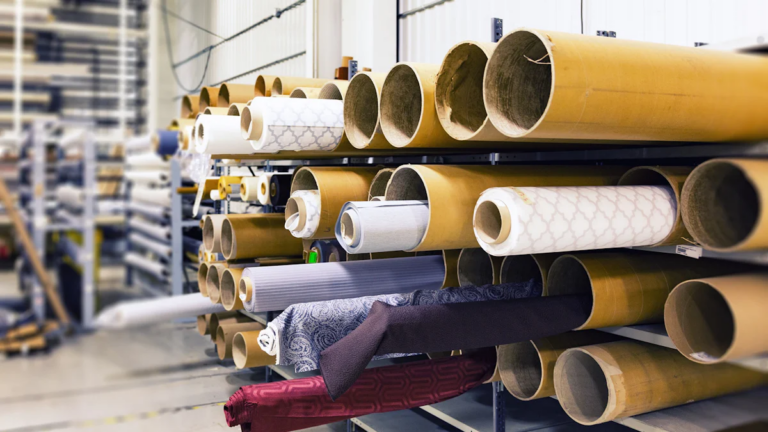In recent years, the target group of sportswear has expanded from athletes and fitness enthusiasts to the general public for commuter apparel. Sportswear serves to provide comfort, functionality, and advancements in performance. It has been observed that the fashion sector is progressively emphasizing sustainable and environmentally friendly practices. As such, a particular focal point has been established around using recycled polyester fibers in sportswear.
Recycled polyester fiber originates from post-consumer plastic materials including bottles that go through a transformation procedure converting waste into high-quality textile fibers for apparel use. The incorporation of this recycle derivative not only offers significant environmental impact reductions but also improves both performance and practicality aspects inherent in sports attire.
By examining the detailed production process as well as investigating varied applications of recycled polyester within sportswear context, it provides valuable understanding towards innovative modification approaches wherein this sustainable material overhauls how conventional sporting attire industry operates. Apart from these discoverable innovations, we will also elaborate on numerous environmentally supportive advantages offered by employing recycled polyester like lowering dependency on virgin raw materials maturity cycles , excessive waste reduction initiatives , whilst promoting circular economy methodologies .
Through deliberate conscious selection of our athletic wear uniquely combined with uncompromised quality assurance framework considerations both functionality and sustainability are achievable objectives thereby positively contributing to establishing an enhanced future green ecosystem .
The manufacturing process of recycled polyester
Utilizing recycled polyester offers a viable and sustainable substitute to the conventional mode of producing polyester, primarily derived from post-consumer plastic bottles and an assortment of recycled materials. The procedures involved in manufacturing this form of polyester consist of several rudimentary stages, focusing on transforming waste constituents into superior-grade textile fibers.
The initial phase in the production process entails scrupulous collection and categorization, wherein plastic bottles along with other recyclable items are accumulated from recycling establishments or waste disposal facilities. A subsequent step involves meticulous sorting where these materials are segregated based on their unique composition as well as color variation.Next, the collected material is thoroughly cleaned to remove any contaminants and impurities. After washing, the material is cut into small pieces to facilitate further processing. The shredded material is then melted at high temperatures, transforming it into a liquid state. The molten plastic is passed through a fine filter to remove any residual impurities, ensuring the purity of the recycled polyester.
And then, the filtered liquid is forced through small holes called spinnerets, forming long, continuous filaments. These filaments are rapidly cooled and cured to form recycled polyester.
Fibers undergo a stretching process in which they are stretched to arrange the molecules and enhance their strength and stability. It is then textured to increase the desired properties of the fiber, such as elasticity and loftiness. Textured fibers are cut to specific lengths to meet the requirements of different applications. The final step is to bundle the recycled polyester fibers into compact bales, ready for further processing and use in the production of sportswear.
The manufacturing process of recycled polyester can help reduce the environmental impact and promote a sustainable approach to textile manufacturing. The use of recycled polyester in sportswear has become a solution that promotes sustainability while maintaining function and performance.
Application of recycled polyester in sportswear
Utilizing recycled polyester in the manufacturing process of sportswear offers an array of advantages. This practice enables manufacturers to craft premium athletic attire that caters effectively to the requirements of athletes and outdoor aficionados, simultaneously diminishing the ecological ramifications associated with textile production.
Moisture Management:
-Recycled polyester is good at drawing moisture away from the skin, keeping athletes dry and comfortable during sports activities.
-The hydrophobic nature of polyester allows sweat to evaporate quickly, which improves the overall performance of the sportswear.
Breathability and Ventilation:
-Sportswear made of recycled polyester has excellent breathability, allows air to circulate, and dissipates body temperature.
-The lightweight, breathable properties of recycled polyester help improve comfort during strenuous exercise and outdoor activities.
Durability and Strength:
-Recycled polyester has excellent strength and elasticity, making it ideal for sportswear that has withstood rigorous use and frequent washing.
-The durability of recycled polyester ensures that the sportswear retains its shape and integrity when worn for long periods of time.
Versatility and flexibility:
-Sportswear is made of recycled polyester for flexibility and freedom of movement, essential for all kinds of athletic pursuits.
-The versatility of recycled polyester allows people to create well-fitting garments that support the movement of athletes without restricting mobility.
Environmental Sustainability:
– The use of recycled polyester in sportswear is environmentally conscious, reduces dependence on virgin resources, and diverts plastic waste from landfills.
– Consumers choose sportswear made from recycled polyester to make a positive contribution to the circular economy and promote sustainable production methods.
Design and Aesthetics:
-Recycled polyester can mimic the look and feel of traditional polyester fibers, offering a wide range of design possibilities for sportswear.
-The versatility of recycled polyester allows for the creation of vibrant and aesthetically pleasing sportswear designs without compromising performance or sustainability.
The incorporation of recycled polyester into sportswear represents an enduring dedication to ecological innovation and conscientious utilisation. In the face of escalating demand for sustainable athletic apparel, the use of regenerated polyester fibres signifies the industry’s unwavering commitment to environmental guardianship as well as product superiority.
Sustainable advantages of recycled polyester
A primary benefit of utilizing recycled polyester is its substantial reduction in carbon sustainability. This material demands less energy and resources compared to traditional polyester manufacturing, essentially leading to decreased emissions of greenhouse gases. Furthermore, by reprocessing plastic waste post-consumption, the production framework for recycled polyester aids in minimizing the quantity that would typically end up in either landfills or ocean waters.
Equally integral on the scale of sustainable benefits is resource conservation. The use of recycled polyester diminishes reliance on untapped reserves such as crude oil and fresh water sources. Remarkably, it has been observed that this recycling procedure can conserve up to 90% of water ordinarily expended in standard polymer production processes – a factor instrumental not only in relieving strain on our precious freshwater supplies but also considerably contributing towards effective water preservation endeavours.
The production of recycled polyester is also characterized by high energy efficiency. Some manufacturers are even utilizing renewable energy sources to power the recycled polyester production process, increasing the sustainability of this production method.
The incorporation of recycled polyester promotes a circular economy. By diverting waste from landfills and reducing the need for virgin resources, it supports a more sustainable and resource-efficient system. Recycled polyester can be recycled over and over again to create new products and extend the life of the material, thereby reducing waste generation.
Lastly, the use of recycled polyester increases consumer awareness of sustainability. As the demand for environmentally friendly products increases, products made with recycled polyester fibers provide consumers with choices that support their values. Transparency in the manufacturing process and clear product labeling allow consumers to make informed decisions and actively participate in promoting sustainable consumption.
Conclusion
The pivotal significance of recycled polyester in ensuring sustainable advantages is instrumental to fostering an environment-conscious and socially accountable future within the sportswear industry. Essentially, these benefits not only yield measurable environmental impacts but serve as potent instigators for positive transformation across both the sportswear segment and indeed, the entire textile value chain.












